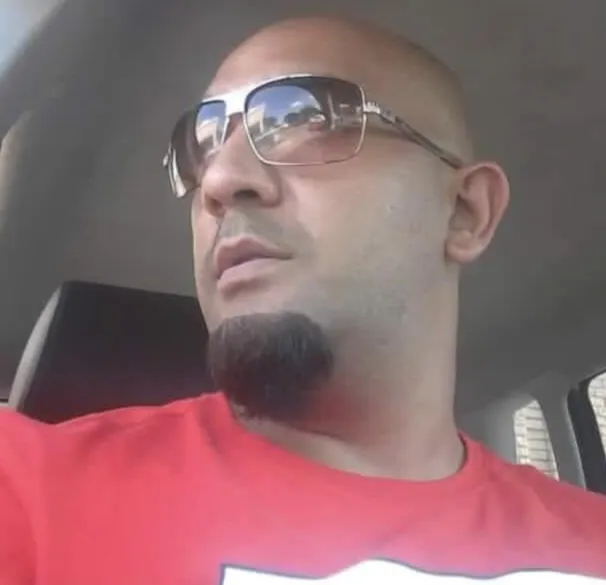Justice for Nazreen: husband convicted in brutal screwdriver murder case
Her family are calling for the maximum sentence for the years of abuse suffered by the mother of three

Nazreen Fakier Cajee
Image: Facebook
NEARLY three years after Nazreen Fakier Cajee was brutally stabbed to death with a screwdriver in her Johannesburg home, her husband Shaheed Cajee has been convicted of murder.
Her family are now calling for the maximum sentence as they reflect on years of abuse suffered by the 39-year-old mother of three
Nazreen, who was 39 years-old at the time, was stabbed about 20 times at the Emmarentia home she shared with her husband, Shaheed, 42, and their three children, aged 21, 15, and 11, in December 2022.
According to reports, their son alerted a neighbour, who arrived at the home and found Nazreen’s body.
Shaheed was found seated in the lounge and covered in blood. He was arrested and charged with her murder.
Following the trial, Shaheed was recently found guilty of murder in the Gauteng High Court.

Shaheed Cajee
Image: Facebook
Speaking to the POST this week, Nazreen’s younger sister, Noëraan Fakier, said she was the centre of her family’s world.
“She was a devoted mother, sister, and friend who never stopped loving, even while living under the shadow of abuse. For nearly two decades, she endured the cruelty of an addicted and violent husband.
In that time, she was denied the most basic human rights - to live in safety, to dream freely, and to raise her children without fear.
“My sister was the kindest of hearts, gentle, radiant, and full of grace. She had a smile that appeared even when no one else could manage one, and a love that reached far beyond herself. She lived a life of hope not only for her own better days, but for everyone around her,” she said.
Fakier said some of her fondest memories was of spending time with Nazreen and her children.
She said she last spoke to Nazreen on her birthday in November that year.
“However, the call was brief and heartbreaking. She was not allowed to talk for long. Her husband’s angry voice interrupted - cursing, threatening, and demanding she hang up. I still hear that moment in my mind - her tearful soft goodbye cut short by violence and control.
“We could only see her when he was away. Every visit was cautious, every smile shadowed by fear of what might follow. She lived for her children; they were her reason to keep going. She gave up her dreams and her passion for design and fashion too soon after marriage, trading her freedom for their safety,” she said.
Fakier said when Nazreen was killed, their “entire world collapsed”.
“Our brother, who was in recovery for a drug addiction at the time, received the news while still in a halfway house. It shattered him completely, sending him spiralling to a place darker than before. For me, it was the loss of everything familiar, the loss of the person who grounded me, who understood me without words.
“The aftermath has been unbearable. Revisiting the details, hearing the evidence, and watching the man she loved show not a flicker of remorse has been torture. To see him stand without acknowledgment of the pain he caused, not just to her but to her children, is something no heart should have to endure.
“However, when I heard he was finally held accountable, I felt for the first time a sense of safety. Relief that he could no longer harm another woman, another family, another life. For Nazreen’s sake, for the sake of her, and for the safety of others in our community, I believe a maximum sentence is not only justified but necessary. It is the only assurance that this cycle of harm ends here.
“Nazreen’s life was stolen in brutality, but her love remains alive in us. She was, and always will be, the light in our hearts,” she said.
Shamila Cajee, a human rights activist, who launched the #Justice4Naz campaign, said on hearing the guilty verdict, she felt a profound mix of relief, sadness, and vindication.
“Too often in South Africa, victims of gender-based violence (GBV) are failed by a justice system that is riddled with corruption and indifference. This campaign was born out of a deep conviction that no one regardless of their financial or social status should ever be allowed to feel above the law.
“I did not know Nazreen personally. I met her sister on the day of the funeral, and it was there amid her immense grief that I made a personal commitment to stand with her until justice was served.
“From the moment the accused was arrested, our collective effort was to monitor court proceedings, ensure transparency, and keep the case in the public eye so that justice could not be quietly buried, as so many others have been,” she said.
Shamila said when the trial began, Nazreen's sister reached out to her for support.
“Together with fellow activists Rashieda Landis and Faeeza Charme, as well as many other GBV activists, we mobilised to attend every court hearing at the high court. Our presence in court was not only to support the victim’s sister, but also to serve as a reminder to the court that society is watching and that justice must be done.
“We sat through painful testimonies, legal delays, and countless emotional moments, however, upon hearing the guilty verdict, it reaffirmed my belief that collective activism matters when society refuses to remain silent, justice is far more likely to prevail,” she said.
Shamila said femicide was a national crisis in South Africa.
“Every day, women are violated, abused, and killed often by those closest to them. To truly address this epidemic, both the government and society must take far stronger, more consistent action.
“The government must enforce harsher penalties for perpetrators of gender-based violence, establish specialised GBV courts for faster and a more sensitive approach when handling cases, and provide adequate protection and psychosocial support to survivors and their families. They also need to tackle corruption and ensure that police officers and prosecutors are held accountable for negligence or bias in GBV cases,” she said.
Phindi Mjonondwane, the National Prosecuting Authority spokesperson for Johannesburg, confirmed Cajee’s conviction for murder.
The case was adjourned for sentencing in November.
Related Topics: